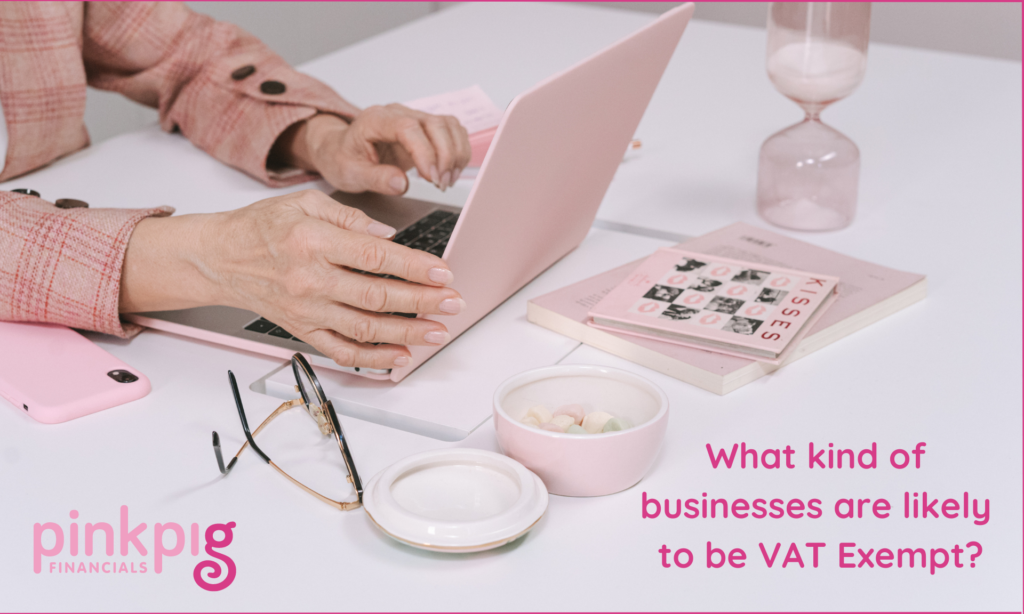Value Added Tax (VAT) is something most businesses will be familiar with, but did you know that not all businesses need to charge or pay VAT? In fact, certain businesses and industries can be VAT exempt, meaning they don’t charge VAT on their sales and may not be able to reclaim it on their purchases.
Understanding whether your business is VAT exempt can have a big impact on your financial planning and pricing strategies.
So, let’s dive into which businesses are most likely to be VAT exempt and what it means for you.
What Does VAT Exemption Mean?
Being VAT exempt can take a big weight off your business’s shoulders by relieving you of the need to pay VAT on certain transactions.
This exemption varies depending on the country and the types of goods or services you provide.
Knowing if your business qualifies for VAT exemption is vital for staying on top of your tax liabilities and avoiding unnecessary costs.
Do You Qualify for VAT Exemption?
For your business to be VAT exempt, it needs to meet specific legal and financial criteria.
These criteria often focus on the nature of your business, the industry you’re in, and your annual turnover.
- Legal Requirements: Depending on your country, certain industries are automatically VAT-exempt, while others need to follow strict guidelines or standards.
- Financial Thresholds: In the UK, as of 2024, businesses with an annual taxable turnover of less than £90,000 are not required to register for VAT. You can still choose to register voluntarily if it suits your business needs, but it’s not mandatory.
Types of Businesses Eligible for VAT Exemption
Let’s take a look at the kinds of businesses that are most likely to be VAT-exempt:
- Small and Medium Enterprises (SMEs)
SMEs are often the heart of the economy, and to give them a bit of a boost, many can qualify for VAT exemption. If your turnover is below the VAT registration threshold, you don’t have to collect or pay VAT, which can help with cash flow and give you a bit of an edge over your competitors. - Non-profit Organisations
Charities and other non-profits working in education, healthcare, and public service often benefit from VAT exemption. This allows them to focus more of their resources on their causes, rather than paying VAT on every penny. - Healthcare Providers
If you’re running a healthcare business, you’ll be pleased to know that essential healthcare services are often VAT-exempt. This includes hospitals, clinics, and medical practitioners, meaning patients benefit from more affordable care. However, some services, like cosmetic treatments, might still be subject to VAT. - Educational Institutions and Trainers
Schools, colleges, and universities are typically VAT-exempt when it comes to formal education. Similarly, vocational training and apprenticeship programs may also qualify, but it depends on whether they meet the criteria set by tax authorities. If you’re a private tutor or coach, you might also be exempt depending on your subject area and qualifications. - Financial and Insurance Services
Banks, lenders, and insurance companies usually don’t charge VAT on services like loans or policies. That said, they may still have to pay VAT on some of their purchases, and their ability to reclaim that VAT can vary. - Cultural and Religious Organisations
Museums, galleries, and religious organisations can also be VAT-exempt in certain countries, especially if they provide access to important cultural or heritage experiences. For instance, entrance fees to non-profit museums or places of worship might be VAT-free, helping to keep these institutions accessible to the public.
What Does VAT Exemption Mean for Your Business?
For small businesses, VAT exemption can be both a blessing and a curse. On one hand, it can reduce costs, make your products or services more competitively priced, and lessen the administrative burden. On the other hand, you won’t be able to reclaim VAT on your purchases, which could leave you out of pocket depending on the nature of your expenses.
It’s essential to understand the pros and cons, keep accurate records, and stay on top of any compliance or reporting obligations to avoid any tax penalties.
Staying on Top of VAT Changes
VAT regulations are constantly changing. Keeping an eye on updates from HMRC or your country’s tax authority is crucial to ensure your business remains compliant. The last thing you want is an unexpected change that leaves you facing a hefty tax bill.
Final Thoughts
Knowing whether your business qualifies for VAT exemption is key to managing your finances effectively.
Small businesses, non-profits, healthcare providers, and educational institutions are among those most likely to benefit.
If you’re unsure whether you’re exempt or not, it’s always worth having a chat with your accountant to make sure you’re ticking all the right boxes and not missing out on any savings.
If you’re looking for help with VAT, tax planning, or financial management, complete our Quick Questionnaire and we’ll be in touch to book in a discovery call. We’re here to make running your business that little bit easier.
For more tax tips and advice, check out PPF on YouTube.

